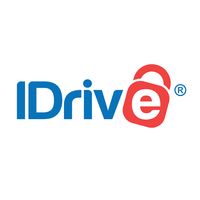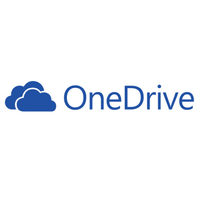Signing up for one of the best free cloud storage services from a leading cloud storage provider means you may not have access to all of the features or functionality available in their paid plans. Still though, they are often more than enough for personal use or even for small businesses. While it may be difficult to narrow down your choices when so many services offer similar free plans, the great thing about free cloud storage is that you can test out multiple services without spending a thing before making your final decision. Keep in mind that file size limits, ease of use, service access and support options are something you want to carefully consider before choosing any cloud storage service whether it’s free or paid. We’ve thoroughly tested and reviewed each of the free cloud storage services on this list and highlighted other features and functionality you might find useful.
The top 3 best free cloud storage solutions available
Take a look at this top cloud storage deal:
The best free cloud storage providers
IDrive (opens in new tab) is the ideal platform if you need somewhere to back up multiple servers and devices, and prioritize end-to-end encryption. The basic free forever plan only supports 5GB of storage, but this should be enough for you to test the platform. The apps aren’t the most impressive, but work as described, and the web app in particular is surprisingly useful, making it easy to manage your various backups. However, it isn’t designed for collaboration, and file-sharing is somewhat limited. If you’re a photographer, video editor, or anyone managing lots of data, IDrive should be one of your top considerations. Read our full IDrive review (opens in new tab) Dropbox (opens in new tab) is a fantastic choice for free, personal cloud storage. The free option offers 2GB of storage, but provides ways to increase space by completing its starting guide (250MB), referring others to Dropbox (500MB per referral, up to 16GB), and contributing to its community forum (1GB). The file sharing leader provides several features that make it easy to share large files with others, whether they use Dropbox or not. You can also use the Dropbox Paper collaboration tool, allowing for seamless file sharing between users, and automatic syncing of photos from the desktop app. An extra free feature is the File Requests tool, which allows you to request users upload directly to your Dropbox account, and to edit files without downloading them while working on the web client version. There are also desktop and mobile apps for the usual suspects, as well as less well-supported platforms like Linux and Kindle. One limitation however is that you can’t back up external or network drives to your account. Dropbox only stores what you transfer to its folder on your device. This isn’t a major issue, but differentiates the platform from competitors like IDrive. Security is impressive without being exceptional, with all files encrypted at rest and in transit, but there is no end-to-end encryption, though accounts can also be secured with 2FA. We think however that you could do much worse than Dropbox for your cloud storage solution Read our full Dropbox review (opens in new tab) For personal use, Microsoft OneDrive (opens in new tab) is a great free cloud storage option, with its free plan offering 5GB of storage. It balances high-capacity storage with functional user interfaces, powerful integrations with the entire Microsoft 365 suite, and a robust security framework. Once you’ve set OneDrive up, it will perform as described with no further effort or stress on your part. Current users of Microsoft 365 also benefit, because 1TB of OneDrive storage is included in your subscription. Its close relationship with Microsoft Office apps and Windows 10 mean it’s ideal for Microsoft users, while mobile apps allow for cross-platform use. It also provides collaborative features that aren’t limited to OneDrive users, so you can share files, customize access, and edit files online without downloading them. Read our full Microsoft OneDrive review (opens in new tab) MEGA.nz (opens in new tab) is a very popular, New Zealand-based cloud storage company, founded in 2013 by Kim Dotcom, a rather controversial figure in the online world. It offers end-to-end encryption and a generous 50GB of storage via its free plan, with absolutely no throttling. While its zero-knowledge encryption technology makes collaboration a bit difficult, individual files can still be shared using a dedicated encryption key required to unlock them. Files can also be password-protected to add another layer of security. MEGA does not impose any limitations on individual file size, and allows restoration of previous versions of corrupted files using built-in file versioning technology. The downloadable client is available for Windows, macOS, Linux, Android, and iOS, while its entire source code was released on Github. This is good for tech-savvy users who want to audit the technology for security issues. However, consumers should be aware that since leaving in 2015, Dotcom has leveled serious accusations against MEGA for possible ties with the New Zealand and Chinese governments. While these accusations have been exaggerated, it is true that its majority shareholder is Beijing-based businesswoman Li Zhi Min. However, as well as its source code being publicly available, MEGA’s zero-knowledge encryption technology also implies it can’t get to your data without permission. Read our full MEGA review (opens in new tab) If you use Apple mobile and desktop devices, and don’t plan on making the jump to Windows or Android anytime soon, then Apple iCloud (opens in new tab) is the logical cloud storage platform for you. When used on Apple OSs, nothing comes close to iCloud in terms of integration, functionality, and ease of use. It seamlessly takes care of device and app backup, and syncs data across all connected devices. For miscellaneous file storage, there is also iCloud Drive. iCloud’s free plans offer 5GB of free storage, not a particularly high amount, but you can always buy more storage, starting at $0.99 a month for 50GB and ranging up to $9.99 for 2TB. Moreover, any items purchased from the iTunes Store can be stored for free without counting towards the free 5GB. We also like that you can share the 2TB storage plan with family members. iCloud doesn’t impose any limits on individual file size. Users can also take advantage of the iWork apps included with it, such as Pages, Numbers, and Keynote. Compatibility issues prevent iCloud from achieving mainstream status, but it still makes for a lucrative offering for MacBook or iPad users. However, security is not a strength, as most data is stored with AES 128-bit encryption. 2FA is included, and should be activated by all users. Read our full Apple iCloud review (opens in new tab) pCloud (opens in new tab) differentiates itself by offering a lifetime access option as well as standard subscription-based options. Its free option provides 10GB of storage, which can be increased to 20GB via completing offers (4GB) and referring people to the service (1GB each), and you get 50GB of downlink traffic bandwidth allowance per month. However, its range of optional add-ons can be confusing to understand. For example, advanced encryption is not a standard feature, but must be purchased separately. Nonetheless, pCloud offers a range of easy-to-use apps that make storing your files and backing up important files, servers, and devices easy. It includes typical features such as file versioning, file recovery, and link sharing, and you can share files with non-pCloud users. Its user interface is easy-to-use, and it has built-in streaming features as well, alongside innovative tools such as automatic upload of content shared via social media. We like pCloud because it balances third-party software integration with admirable backup features: however, it isn’t a leader in either category. Read our full pCloud review (opens in new tab)
Which is the best free cloud storage service?
IDrive is our top choice for the best free cloud storage, offering high-value, extremely secure storage via end-to-end encryption, backup and restore features, and a user-friendly web app. It’s also our choice for the best cloud storage (opens in new tab), the best cloud storage for photos (opens in new tab), and the best personal cloud storage (opens in new tab). Following IDrive among the best free cloud storage providers are Dropbox, OneDrive, MEGA, Apple iCloud, and pCloud, with each offering varying levels of storage alongside unique features and advanced security tools.
What you need to know about cloud storage security
With many comparisons and much debate on the security of cloud storage, especially when pitting on-prem (on-premises storage) vs cloud storage (opens in new tab), or even cloud storage vs external hard disk drives (opens in new tab), the best cloud storage (including the best free cloud storage) often utilizes top-line security and encryption tools. It may not technically be as secure as local storage for obvious reasons, but how secure is cloud storage (opens in new tab), and how do secure cloud systems (opens in new tab) protect your files? Encryption is key here: end-to-end encryption protects data along its whole path from device to storage and back, while in-transit and at-rest encryption render data indecipherable even if intercepted by criminals. Zero-knowledge architecture meanwhile ensures that not even a cloud storage provider’s staff can access your data, nor can they be compelled to release it even if law enforcement demands it. For enterprises, cloud storage security is significant, particularly if you operate in data or privacy-sensitive sectors. There, investing in secure cloud storage (opens in new tab) that offers state-of-the-art policies is non-negotiable. However, the very best providers not only protect data, but infrastructure housing it. Data centers owned by Storage-as-a-Service (StaaS) cloud storage providers have 24/7 security guards, biometric authorization for entry, and frequent auditing. The location of data centers is key too, with different countries having different data privacy laws, so ensure data is stored in a nation that complies with your data privacy obligations.
Further reading on cloud storage
If you’ve signed up to either OneDrive, iCloud, or Dropbox, make sure to read our comprehensive step-by-step guide on how to use Dropbox, OneDrive, Google Drive, or iCloud (opens in new tab). Find out more about data backup and recovery (opens in new tab) too, if you’re unsure as to what to do should you lose your stored data.





